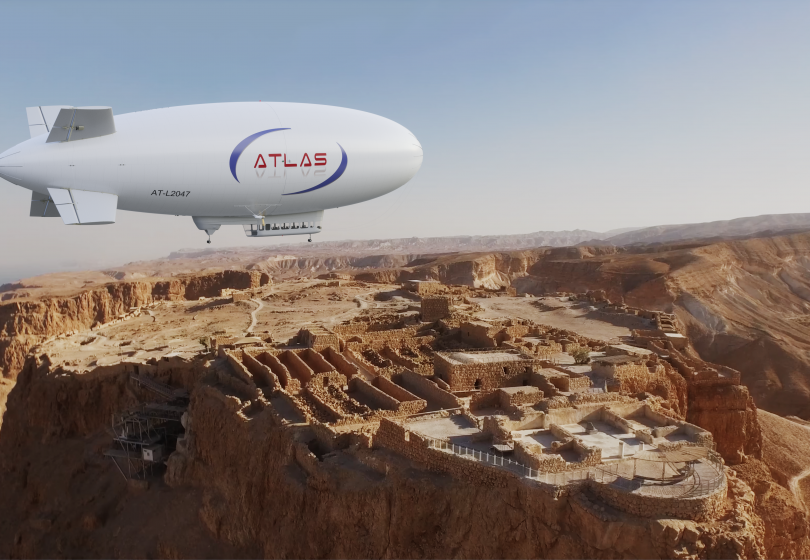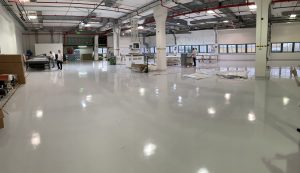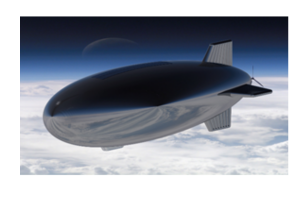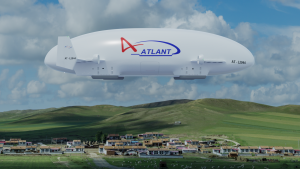The Rise of Airships in Israel

All over the world, aerial transportation plays an important role in many spheres of life, including tourism, transportation of passengers and cargo and defense. This field is currently completely dominated by heavier-than-air technology, which comes with a high price in terms of a huge carbon footprint and vast infrastructure requirements. With an estimated 8% of all carbon emissions coming from aviation alone, there is an urgent need for measures that will reduce this negative impact. The answer to this challenge lies in lighter-than-air technology – the older, and sometimes forgotten, brother of modern aviation.

Graf Zeppelin LZ-127 over the Tower of David. April 1931.
Newly-established Israeli company, Atlas LTA Advanced Technology Ltd, has brought together leading experts from around the world in the unique field of lighter-than-air technology. The core team members have extensive experience in building airships and aerostats for all kinds of purpose, and together offer a solid technical background for the company’s current production activities and future developments.

Atlas’ production facilities in Rosh HaAyin
Atlas’s main goal is to introduce its green airships into everyday life, thereby reducing poisonous carbon emissions. The company is active in many fields, delivering practical, cost-effective solutions in the form of modern airships and aerostats. For example, Atlas-6/11 sightseeing airships are sparking curiosity at national parks and historic landmarks all over the world, thanks to the smooth, comfortable and quiet flight experience they offer. The perfect flying machine, they feature environment-friendly electric propulsion that reduces operational costs to make this unique experience more affordable.
The advantages of the lighter-than-air technologies proposed by Atlas can also be clearly seen in the context of communications and surveillance missions. High altitude, long range, and unprecedented endurance of unmanned flight all contribute to making tethered aerostats or solar-powered airships a unique and highly-effective solution in several instances where traditional aircraft cannot be used. Besides the obvious economic advantages, their performance does not require the burning of any traditional fuel.

High-altitude solar-powered airship
Atlas’s flagship project is to build a new family of large-capacity transport airships, which will be capable of carrying oversized and overweight cargo of up to 165 tons, using safe helium buoyancy and dynamic lift made possible by low-emission hybrid-electric propulsion. Named ATLANT, this airship will significantly reduce transportation costs and will eventually change the world of cargo transportation. Since it does not require any special infrastructure, it can land in a desert, on water or even Arctic ice, making many hard-to-reach destinations much more accessible.
Based on the company’s latest innovations and practical achievements, this ambitious project applies important lessons learnt from its predecessors. Use of hydrogen as its fuel will make ATLANT the first zero-emission, large-capacity cargo aircraft. In the future, when the rules permit, it can be turned into a fully-autonomous unmanned cargo vehicle – the world’s largest UAV. The ATLANT is expected to be emission free within the next six to seven years.

For the first time in history, airship manufacturing is taking place in Israel and across the whole Middle East region, and not by coincidence; this location allows relatively easy transportation of materials and components, which are carefully collected from all over the world. The well-developed aerospace ecosystem in Israel is also a great source of the highly-qualified personnel, facilities and state-of-the-art technologies required to design and produce contemporary airships and aerostats. This new, promising industry is set to make our lives better, safer and cleaner.




